Summary: Have you ever made a mistake? Likely. But in my experience, when women make a mistake – we don’t say ‘whoops, I won’t do that again’, we think we are a mistake. In this article I speak about what I call the “Mistake Mindset”, five ways it shows up and a guide for some deep and meaningful reflection to improve your relationship with the most important person you know: you.
In 1996, I went for my first ever ‘proper’ job interview at 18 of age. It was for a ‘I’ll-take-whatever-you-can-give-me’ role at what was then, Toronto’s most popular restaurant – Preggo Della Piazza.

source: FoodPages.ca
The interview took place at the restaurant’s middle bar – Enoteca – with the owner, Michael Carlevale. He was an eccentric gay man (still taboo at the time) with a heavy Bostonian accent, notorious for two things: dressing like the Paddington Bear, and his bi-polar-esque personality, likely amplified by his love of cocaine.
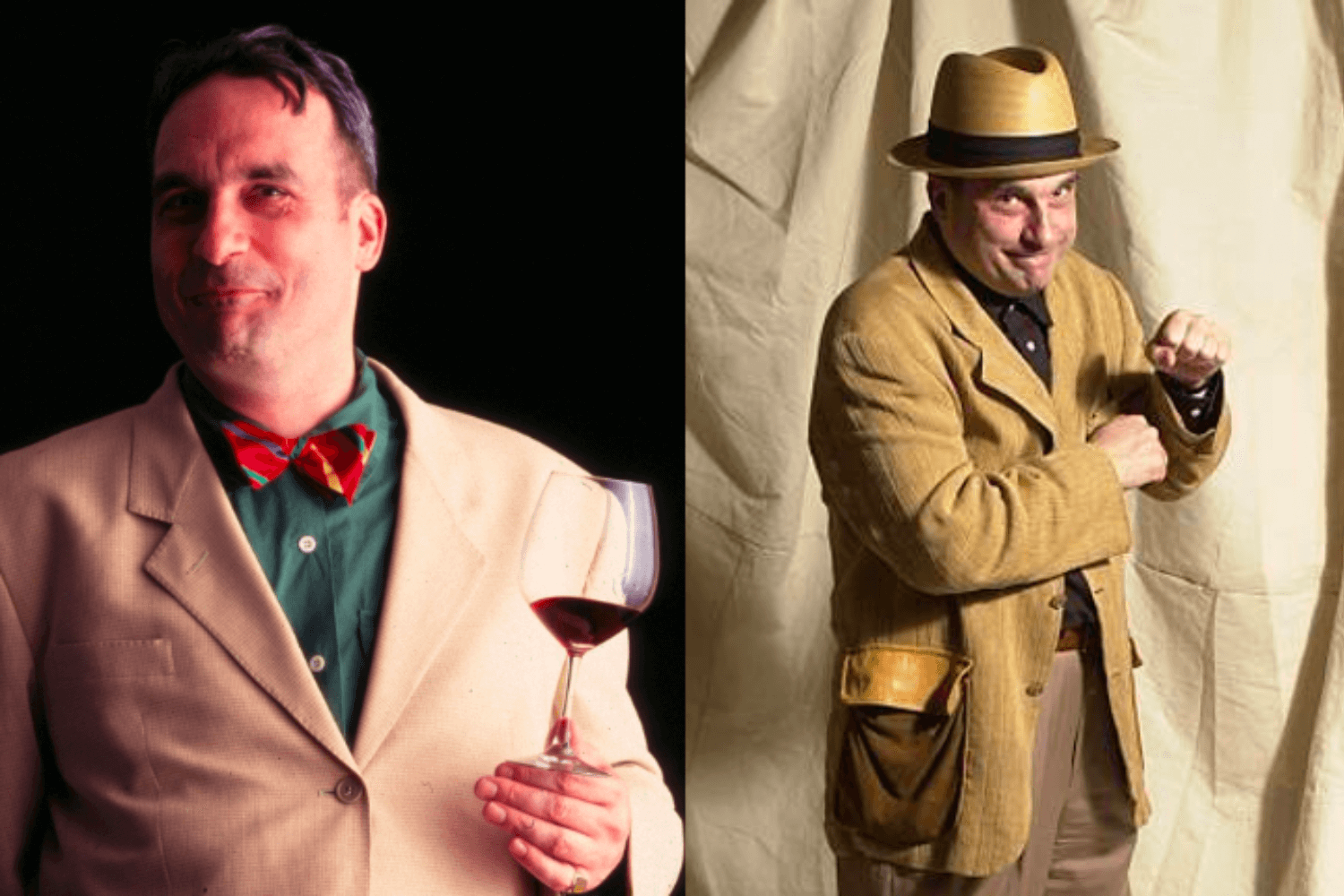
source: unknown
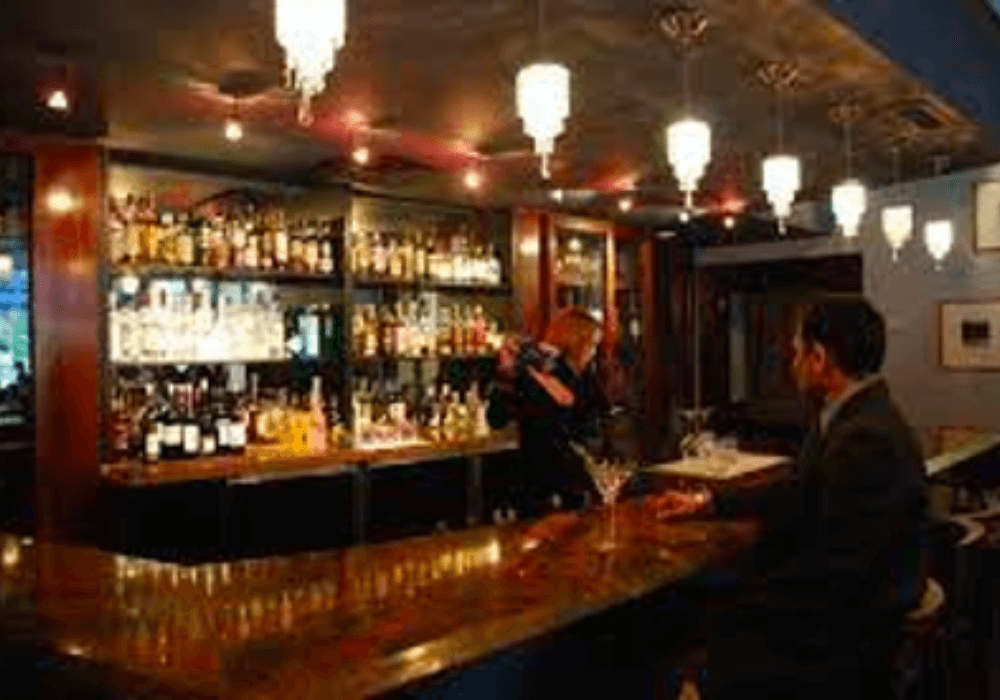
Enoteca Bar, source unknown
“So, you wanna work here?”
Michael said, whilst (I kid you not), using the tip of his 10-inch-long steak knife to dig out a piece of lodged steak from his teeth.
This, my friends, was my introduction to the world of being a responsible adult (it’s no wonder that I’m yet to become an adult).
He gave me a job (albeit the actual job was yet to be determined) and finished the interview by (again, no joke) whisking me away with a sweep of his extended fingers while muttering,
“Go away”.
I was stoked!
Into the deep end
For example, I was asked to mince chives as a garnish for the carpaccio dish – done! Or so I thought. I was then shown that the size of each cut chive had to be the exact same size. No perfectionism there eh?
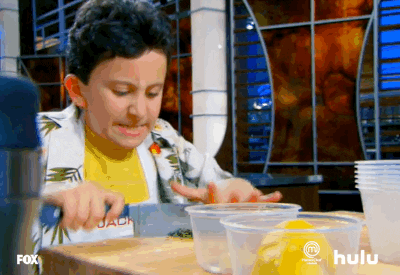
Only a week into the job, Michael came around to check through the kitchen. He stopped dead cold in front of me and said,
“Did I hire you?”.
From then on, the kitchen staff would give me a heads up and I would hide in the huge walk-in refrigerator until he left, in order to keep my job.
After a few months, I was then part of the furniture. The Toronto Film Festival – oh what an experience! Demi Moore, Cher, Michael Jordan were only a few of the incredible talents that came through the restaurant. I was place as a server of the buffet (I served a braised chicken dish) and none other than Halle Berry came up and asked for a portion. To this day, I will never forget her incredible smile – she clearly saw that I needed some comfort to unlock my full body paralysation so she could indeed, get some of the chicken that she was waiting for.
Throughout this time I got to know the Executive Chef, Massimo Capra, who to this day, I still consider one of the most impactful mentors of my life.
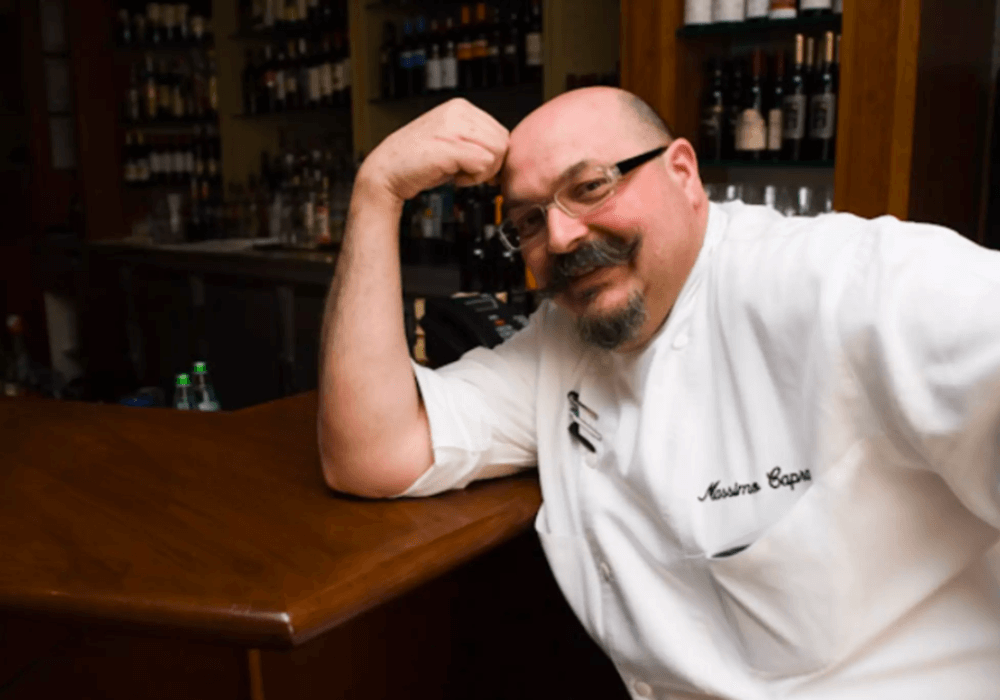
source: blogto.com
Then… after only a few months, she quit.
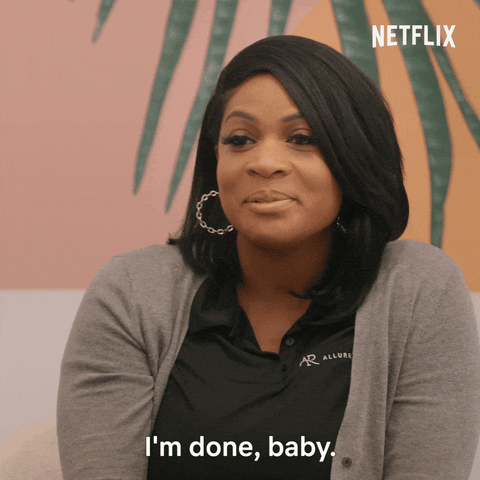
At that point, Massimo could have just blinked and a lineup of people would have appeared and given their right arm to get a chance at the position.
But…
Massimo gave that position to me: an 18-year-old who was taught by TV chefs and my collection of well-worn cookbooks.
Now, you might expect the rest of the story to be ‘a star was born’ but not in the way you’re expecting.
I must preface what’s coming by saying I created many dishes that I am still very proud of to this day. Remember, this is well before the time of YouTube and Pinterest (t’was circa 1996) where you could get some inspiration and even training, so my sources of inspiration were few.
My favourite creations included a beautifully colourful dish of dessert sushi, and a chocolate cigar (fully edible, including the label) that was filled with cappuccino mousse and decorated with chocolate ‘ash’.
Many, many mistakes
But I also made a LOT of mistakes.
Mistake 1: I somehow threw out a dough hook. Now, you need to remember – commercial dough hooks weigh about 2 kg and are the size of Dwayne Johnson’s arm.
Mistake 2: Making a huge batch (like 1000) biscotti… where only, after slicing, double-baking them and storing them carefully, found out I forgot to add the sugar. To the garbage they went.
Mistake 3: Placing a freshly baked and thus very HOT berry cobbler on a non-heat resistant glass shelf. You can figure out what happened next.
But here is the mother of all mistakes.
Mistake 4: It occurred while making a batch of coulis, which is a puree that is used to make pretty designs on dessert plates.
It’s made by lightly boiling fruit (usually berries) that are then pureed and strained through a fine-mesh sieve (to ensure a smooth result).
So, I followed the steps. I poured the boiling-hot mixture into a stand-up tall blender, put the lid on nice and tight and then turned the machine on.
Did you know that heat creates pressure?
I do now.
Milliseconds after I pressed the ‘on’ button the lid blew off and the coulis (a dark, plum colour) sprayed and hit the ceiling and everything around it.
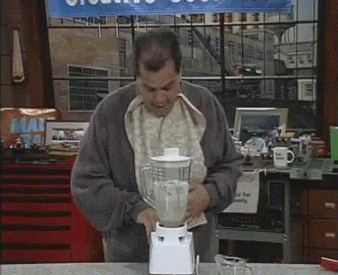
There was no doubt in my mind – this was my last day in the kitchen that brought me so much joy.
Instead, Massimo patiently took off his crisp white chef’s jacket (that was now mostly purple) and said “Oh Caterina” with a smirk.
Why do we put ourselves down?
The point of these stories is simple: when we make a mistake, we need to remember that it is something we do, it is not who we are.
Yet for many of us, myself included, we default to:
“I made a mistake, therefore I am a mistake.”
This is rarely something we’re conscious of, but rather an insidious cancer that eats away at our self-worth whilst decaying the threads of self-respect that help us hold our heads high.
It’s a self-talk that eats away at our dignity, like a manipulative prison guard that keeps us in our cell, not with a lock and key, but through piercing words of self-degradation.
And I see it all the time.
A beautiful human who, because of acne, hides away from the world.
A woman in business who doesn’t speak up when a proposed project conflicts with her values.
A woman who loves to write but stops because someone tells her ‘your style of writing will never be good enough’.
The bankruptee, who fears she will never, ever be successful.
A single woman who swings from relationship to relationship to prove her worth.
And yes, these are my stories, and I have many more.
Our brain loves mistakes
‘Pay attention! Yes, you screwed up, but this is important for you to grow and get better!’

And yet we quickly default to
‘Run away. This hurts. Give up.’
I spent years improving my relationship with failure. Whilst I’m still a ‘brain in training’, I hope that the rest of the article provides you, the beautiful human you are, a few nuggets of guidance to change your perception of mistakes – so you fail fast, learn even faster and take the quicker road to living your dreams without apologising for who you are.
5 ways the “Mistake Mindset” shows up
Before we begin, you may feel like some of the examples could be classified as social anxiety or other diagnosable mental health issues. However, the following are only examples taken through my own perception of the “Mistake Mindset”, and not be used to self-diagnose.
The Nice One

- Becoming overly nice and/or obsequious (being excessively eager to please someone).
- Always apologising for everything, even if it’s not your fault. (I’m quite sure Canadians are the creators of this one).
- Find it hard to express how you really feel (you always answer, “I’m good!” because you don’t want to bring people down or create conflict).
- Regularly overextending yourself even when help is not asked.
The Chameleon

- Changing who you are to fit in (“Oh I love watching cricket” even though you couldn’t think of anything worse to waste your time on).
- You rarely have or express your own point of view in fear it won’t be the same as the other person’s view.
- You allow others to choose your path in life, rather than staying true to your interests.
The Hider

- Making yourself as unobvious as possible – becoming a wallflower.
- Shrinking away from the world to avoid the discomfort of ‘being or making a mistake’.
- The thought of ‘standing out in the crowd’ makes your skin crawl (note, this is separate from social anxiety, and rather refers to the fact that you don’t want to stand out because people might not like you).
The Overachiever
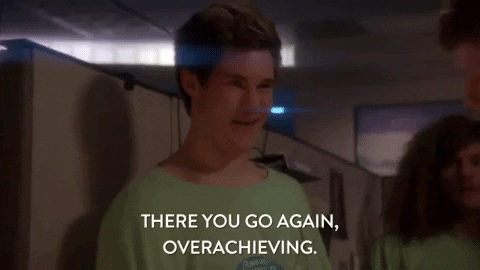
- By proving how good you are, you’ll eventually prove to yourself that you aren’t a mistake.
- Every time you achieve something, it’s never ‘good enough’ (you can always find mistakes, or someone always does things better).
- You also set higher (and even) unrealistic goals each subsequent time, but this is not because you want to challenge yourself, but rather to prove your worth.
- Results are either good or bad, but they’re never great.
- You strive for achievement not for a sense of purpose or to learn, but rather to avoid feeling like a failure/mistake.
The Needer
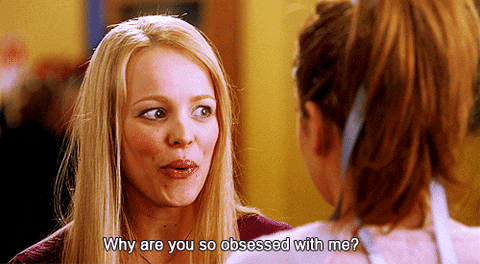
- Needing validation from others because validation of yourself is
- When you give your opinion or answer a question, your worth is dependent on whether or not the person likes or agrees with your answer.
- Even when someone treats you poorly, you only see things from their point of view (you dismiss your perception of reality).
- You try to rescue people (reasons behind this are slightly more complex).
Becoming perfectly imperfect
But, I can’t.
Just like you can’t do a shooter of wheatgrass (barf, by the way) and become a health goddess for the remainder of your life, the same goes with changing your mindset.
What I’d like to do instead is present a model I’ve been working on as a framework to do some thinking.
These are not SMART goals – they are things to think about when you’re in the shower, on a walk or doing number twosies.
A model that, when I think about my own journey, is the ‘step-approach’ I’ve used unconsciously, until now, to build back up my own self-respect and sense of self.
Essentially, it’s helped me become me, perfectly imperfect, mistakes and all.
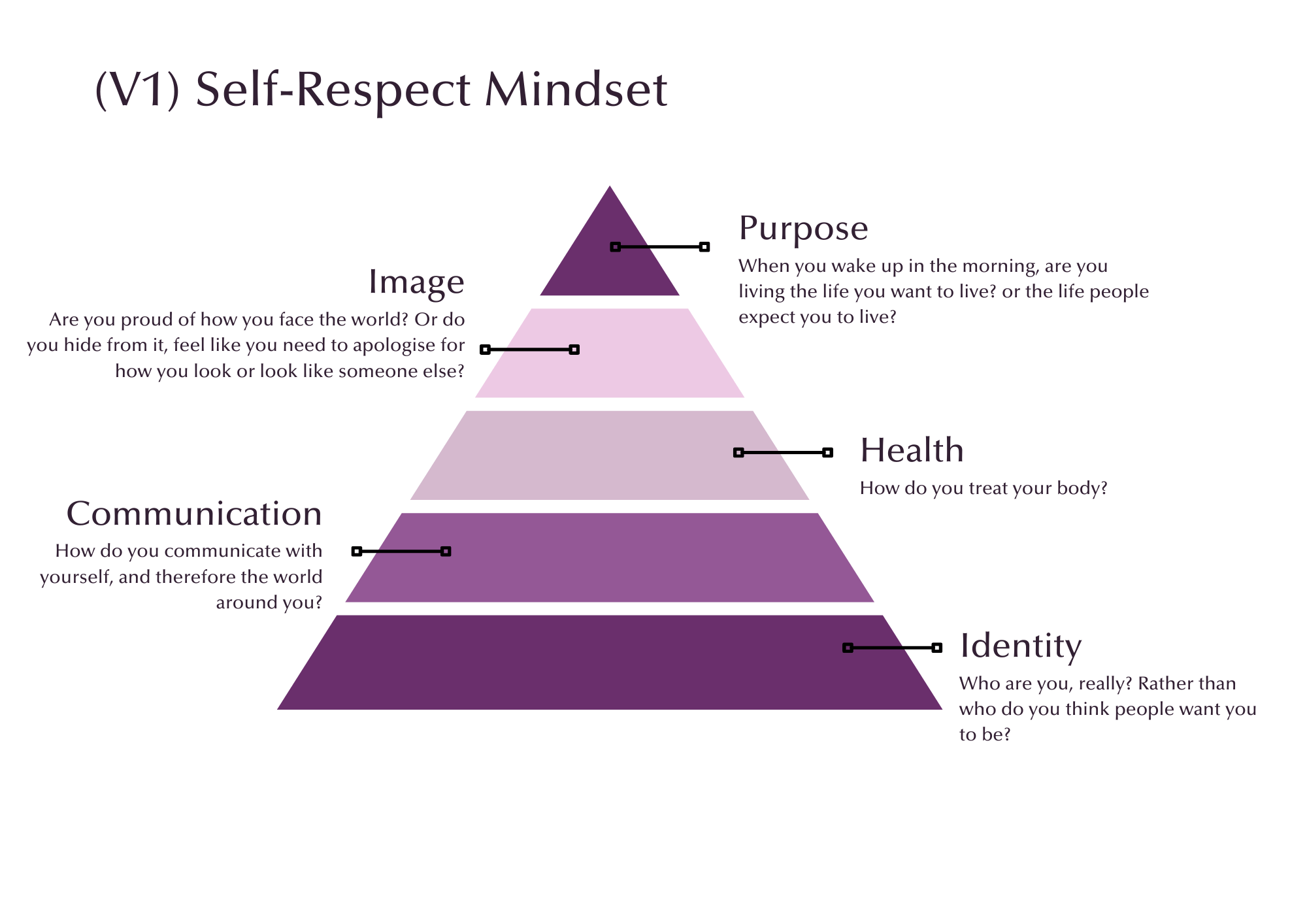
1. Identity
What do you think of when I ask you “who are you, truly?” Do you ensure your answer would be comfortable to say in front of someone specific? For example, do you think of yourself in terms of who someone wants you to be? Like one of your parents, your boss or someone who you respect and admire (and you secretly crave their approval)?
2. Communication
When you’ve made a significant ‘mistake’, such as ‘screwing’ up a presentation, spilling on yourself during a first date or going to the washroom after a networking event only to see that you have a bat in the cave (a booger), what things do you say to yourself? To do this properly, please do not filter your answer – you are not submitting this for a grade. This is for YOU only.
3. Health
What happens to your diet choices and activity levels after you’ve made a mistake? Do you watch Netflix because you need a bit of rest and recovery? or do you watch it to avoid feeling the hurt you’re experiencing? Do you have a ‘no list’ food because it lifts your spirits, or do you have it because ‘what’s the point, everything is going wrong anyways’?
Note: You may think ‘what does my health have to do with feeling like I’m a mistake?” – and, I get it. It does seem foreign. But from my own experience and hearing the experience of others, controlling what we eat or using food to control our emotions has become the common norm. Furthermore, going to the gym to fix how we ‘look like a mistake’ compared to others is once again, the common norm.
4. Image
When you’re deep into the Mistake Mindset, how do you carry yourself when you face the world? Do you put some extra pride into your appearance to remind yourself how fabulous you still are? or do you slide into a slump and stay in trackies instead?
5. Purpose
This is a big one, and I would argue too big to insult its importance by posing a simple question.
So I’d like to give you an example of how the Mistake Mindset is related to purpose to help you understand the connection and its importance.
If you’ve followed my journey, you’ll know that about 1.5 years ago, I found myself presenting on topics that I wasn’t really interested in. Heck, I found myself giving a presentation on ‘confidence in sales’ – really? I am the WORST person to teach on that topic!
After every one of these types of presentation, no matter how great it went, I left feeling like my soul was sold to Satan.
I was living out the purpose that was decided for me, not my own. So no matter what I did (and I always put in 110% effort when working with others, that’s part of my value system), how well I did it and how amazing people said it was – I always felt like a mistake.
So my final question to you is this: if money were no object, and you could do anything you wanted, something that, even if you did make a mistake, you wouldn’t care, because you were so gosh darn in love with the process of learning and living inside your purpose – what would you do? Is it what you’re doing RIGHT now? or something different?
“A miracle is a shift in perception”
This is a truncated quote by Marianne Williamson (author and now confirmed candidate for US president).
I’m about to turn 45 years old in a few months (June 18th to be exact, and my shoe size is 36 just in case). Point being, I’ve had a ‘few’ years to change, adapt and improve how I perceive both myself and the world around me.
While I’ve come a long way, I accept the fact that I still have a long way to go… and I’m ok with that.
That’s the funny thing about personal growth – it’s really, really hard at the start. You feel like you will never be happy, confident and grow a level of self-love that you only see in the movies.
I remember those days. I was there, feeling stuck, alone and like everyone else was right and I was wrong.
But then, things got easier.
The periods of low days start to become shorter and less frequent.
You start to realise that there is always a bright, warming, and nurturing sun hidden behind even the darkest clouds.
You start feeling like ‘you’ rather than a person searching for who they want to become.
It’s all possible… and probable, if you put in the effort.
My one request: if this article has resonated with you, even just a little, I invite you to re-read this article again in a few days after considering the five questions above. When you read it, ask yourself “has my perception of myself or the world around me changed?”
If so, how has it changed?
But remember, yes miracles are a change in perception… but it is up to you to change your own perception.
As always, I’d love to hear from you if any of this article has rung true for you. Drop me a line, anytime.
Until next time, never forget that every day is your chance to shine.
Dr Katherine xo

